Bobby Schaeffer's Ultimate Power Golf Swing Positions
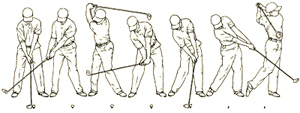
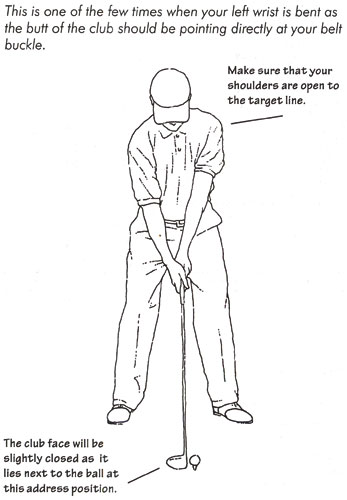
1. Address
This one of the few times when your left wrist is bent as
the butt of the club should be pointing directly at your belt buckle.
Make sure that your shoulders are open to the target line. The club face
will be slightly closed as it lies next to the ball at this address position.
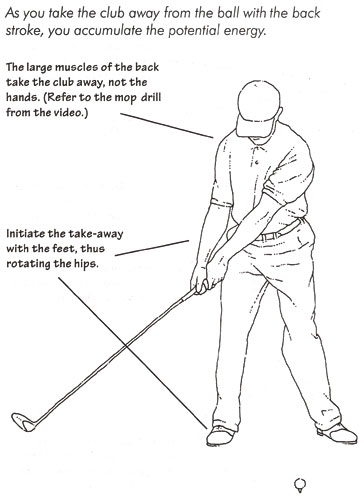
2. Back Swing
As you take the club away from the ball with the back
stroke, you accumulate the potential energy.
The large muscles of the back take the club away, not the
hands. (Refer to the mop drill from the video.)
Initiate the take-away with the feet, thus rotating the hips.
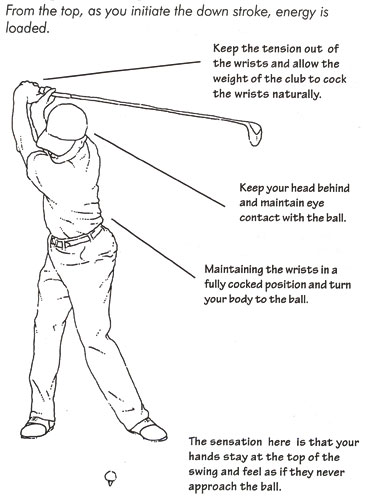
3. Top of Swing
From the top, as you initiate the down stroke, energy is loaded.
Keep the tension out of the wrists and allow the weight of the club to cock
the wrists naturally. Keep your head behind and maintain eye
contact with the ball. Maintaining the wrists in a fully cocked position and turn
your body to the ball. The sensation here is that your hands stay at the top of the
swing and feel as if they never approach the ball.
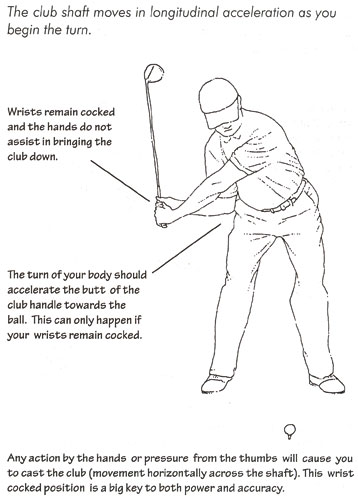
4. Down Stroke
The club shaft moves in longitudinal acceleration as you begin the turn.
Wrists remain cocked and the hands do not assist in bringing the
club down. The turn of your body should accelerate the butt of the
club handle toward the ball. This can only happen if your wrists remain cocked.
Any action by the hands or pressure from the thumbs will
cause you to cast the club (movement horizontally across the shaft).
This wrist cocked position is a big key to both power and accuracy.
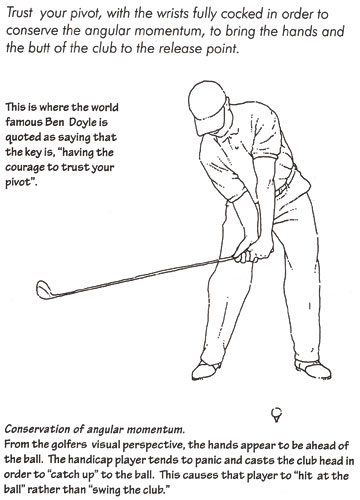
5. Release Point
Trust your pivot, with the wrists fully cocked in order to
conserve the angular momentum, to bring the hands and the butt of the club to
the release point. This is where the world famous Ben Doyle is
quoted as saying that they key is, "having the courage to trust your
pivot". Conservation of angular momentum. From the golfers visual
perspective, the hands appear to be ahead of the ball.
The handicap player tends to panic and casts the club head in order to "catch up" to the ball.
This causes that player to "hit at the ball" rather than "swing the club."
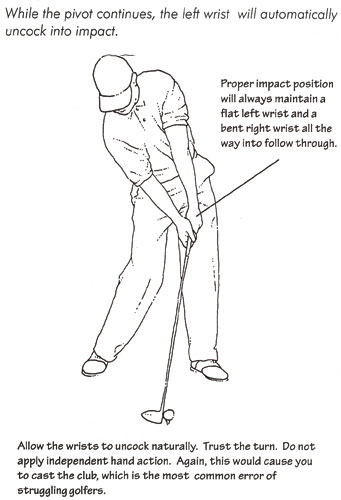
6. Impact
While the pivot continues, the left wrist will automatically
uncock into impact. Proper impact position will always maintain a
flat left wrist and a bent right wrist all the way into follow through.
Allow the wrists to uncock naturally. Trust the turn.
Do not apply independent hand action. Again, this would cause you to cast the club,
which is them ost common error of struggling golfers.
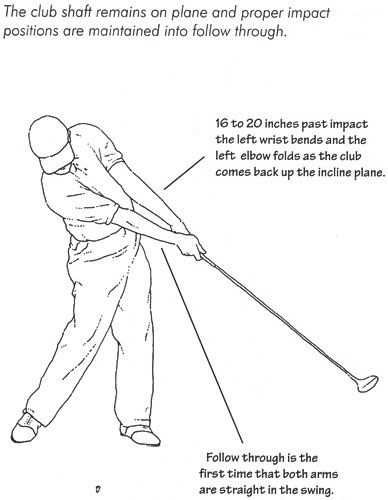
7. Follow-Through
The club shaft remains on plane and proper impact positions
are maintained into follow through. 16 to 20 inches past impact
the left wrist bends and the left elbow folds as the club
comes back up the incline plane. Follow through is the
first time that both arms are straight in the swing.
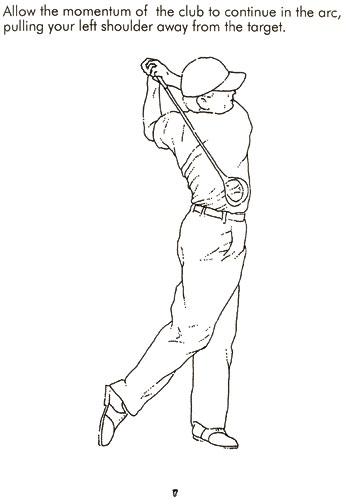
8. Finish
Allow the momentum of the club to continue in the arc,
pulling your left shoulder away from the target.